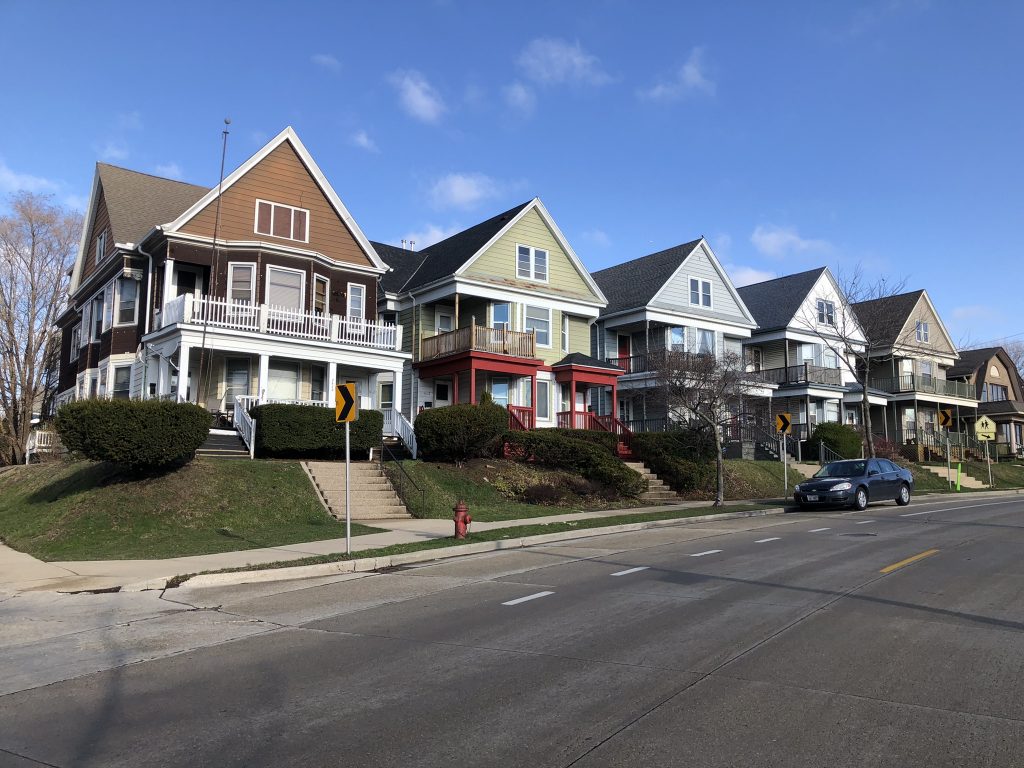City Could Regulate Airbnb, Other Services
Short-term rentals have proliferated beyond Downtown, but no public database of who is participating exists.
Milwaukee could add new regulations to properties listed on Airbnb or other short-term rental services.
The Common Council, led by council members Milele A. Coggs and Mark Chambers, Jr., is requesting a number of city departments explore what legal leverage the city has.
“When I looked into it, the response I got was the state took away all of our local control,” said Alderman Michael Murphy on Tuesday during a meeting of the Zoning, Neighborhoods & Development Committee. A 2017 state law change fully legalized the hotel-alternative services.
Since the law change, the services have proliferated. Murphy’s backing the request for a new look to determine where the city has control.
Coggs said the number of participating properties has grown substantially in her district, which stretches northwest from Downtown. She said parts of Halyard Park, a neighborhood of primarily ranch-style single-family homes north of Downtown, now have three out of five houses on a block rented out for short-term stays.
The alderwoman said an expanded convention center and the Republican National Convention could further expand things beyond Downtown. “We should probably be on top of these short-term rentals sooner rather than later,” she told the committee.
The request is for the Department of Neighborhood Services (DNS), Department of City Development (DCD), Milwaukee Health Department and Assessor’s Office to explore the options available and report back within 60 days.
Any current enforcement of resulting issues is complaint-based.
“To some extent, we are addressing the nuisance issues that neighbors and neighborhoods may be experiencing,” said DNS Commissioner Erica Roberts. “What we aren’t addressing is true regulatory authority.”
DCD planning manager Sam Leichtling said the 2017 state law changes preserved some areas for local control.
“All of us, along with the Mayor’s Office, are going to be working on the timeline that has been given,” said the planning manager. “There is a whole variety of regulatory approaches other cities have taken.” He said the departments would return with ideas and a report on the actions of other cities.
Leichtling said two options are clearly available under state law: requiring a license and restricting stays of less than a week.
Part of the issue facing the city today is unlike hotels, there is no registration or zoning requirement for participating property owners. Individuals can sign up for Airbnb, VRBO, FlipKey, HomeAway and other services with virtually no local registration. There are homes that are rented out infrequently, when an owner is out of town, and others all year. Partial home rentals are also available on the services.
Leichtling said UW-Milwaukee researchers previously purchased a third-party dataset that reported there was “roughly 1,000 units rented on Airbnb at a given time in Milwaukee.”
There is a voluntary registry of “tourist rooming house” licensees the city maintains, but Roberts said it is limited to about 20 participants.
Ald. Robert Bauman introduced a zoning proposal in early 2020, but it never received a hearing as the COVID-19 pandemic took hold.
On Tuesday, he said the short-term rentals largely mirror what happened with transportation network companies like Uber and Lyft, with the state stripping local authority at the companies’ request.
“We want to be very precise and very deliberate about how we go forward with regulations like this,” said Ald. Jonathan Brostoff.
And whatever the proposal is, there likely isn’t money in it for the city.
Any license fee the city creates would be limited to recovering the cost of administering the license program. The city’s 10% hotel tax goes to the Wisconsin Center District.
Users of Airbnb and other services are subject to the hotel room tax.
Coggs said her intent was regulation, not revenue, but that she thinks some of her constituents might be seeing a cost from the existing operators. She said homes in Halyard Park have sold for higher values when targeted for use as short-term rentals, which has driven assessments higher for homeowners. Assessment Commissioner Nicole Larsen said she would explore options for how to factor those sales in assessments.
The study request is sponsored by Coggs, Chambers, Murphy, Bauman, Brostoff, JoCasta Zamarripa and Russell W. Stamper, II.
Legislation Link - Urban Milwaukee members see direct links to legislation mentioned in this article. Join today
If you think stories like this are important, become a member of Urban Milwaukee and help support real, independent journalism. Plus you get some cool added benefits.
Political Contributions Tracker
Displaying political contributions between people mentioned in this story. Learn more.
Eyes on Milwaukee
-
Church, Cupid Partner On Affordable Housing
 Dec 4th, 2023 by Jeramey Jannene
Dec 4th, 2023 by Jeramey Jannene
-
Downtown Building Sells For Nearly Twice Its Assessed Value
 Nov 12th, 2023 by Jeramey Jannene
Nov 12th, 2023 by Jeramey Jannene
-
Immigration Office Moving To 310W Building
 Oct 25th, 2023 by Jeramey Jannene
Oct 25th, 2023 by Jeramey Jannene






















